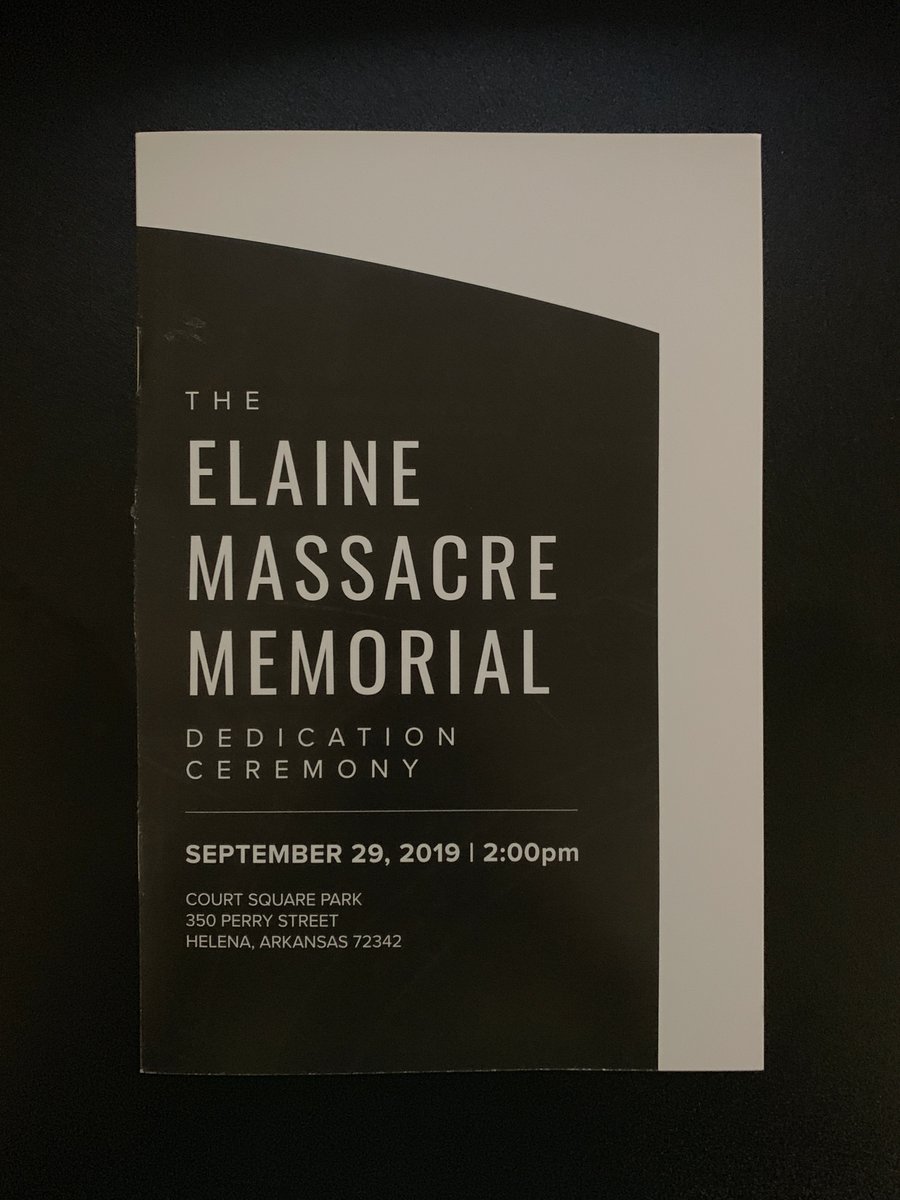Today marks the 100 year anniversary of one of the deadliest anti-black race riots in U.S. history. On September 30, 1919 mobs of white men began murdering more than 200 black sharecroppers in Elaine, Arkansas. A century later a memorial has finally been built.
#ElaineMassacre
#ElaineMassacre

Afterward the massacre hundreds of black people were corralled into stockades. In a fraud of a trial, twelve men were charged with murder. They eventually avoided execution, but they became known as the Elaine 12. #IdaBWells helped publicize their case.
#ElaineMassacre
#ElaineMassacre

Elaine, AR is in Phillips County & the memorial was built in the county seat of Helena. While some controversy remains concerning the memorial's placement, Brian Miller, a federal judge whose 4 great uncles were killed in the massacre, explained its significance.
#ElaineMassacre
#ElaineMassacre
For decades the exact details of this massacre have been hidden, denied, and distorted. White supremacists framed it as a black insurrection. One newspaper headline read: “General Massacre of Whites Planned by Arkansas Blacks."
#ElaineMassacre
#ElaineMassacre

The deliberate obfuscation of the facts along with the devaluing of black lives means we may never know the exact number of people killed nor their identities. This is yet another reason we must still insist that #BlackLivesMatter
#ElaineMassacre
#ElaineMassacre

We must also remember that the massacre started because black sharecroppers, members of the Progressive Farmers and Household Union, decided to organize for better prices on the cotton they picked. As I've often said, greed is this nation's original sin.
#ElaineMassacre
#ElaineMassacre
Today we pause to remember that which many have tried to forget. We remember because every life is important. We remember so we will never repeat such an atrocity. We remember the past so we can shape a new future.
#ElaineMassacre


#ElaineMassacre



• • •
Missing some Tweet in this thread? You can try to
force a refresh










